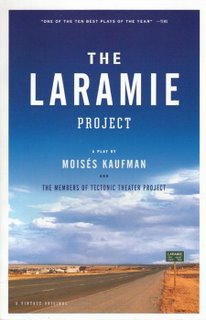Intoxication frequently leads to a lowering of one's inhibitions, and intoxicated people will do things they would not do while sober, often ignoring social, moral, and legal considerations.
Alcohol is a neurotoxin that acts as a depressant. One of the oft untoward effects of this is that it lowers inhibitions in people who consume alcohol. While the word "inhibition" has taken on a somewhat negative connotation over the course of the last several decades and is now usually inferred and implied to mean some sort of "hang-up," a recent social encounter that was fuelled by goodly amounts of liquor reaffirmed for me that we should probably treat our inhibitions with a little more respect, if for no other reason than the fact that certain inhibitions might very well spare the owners a severe ass-whoopin'. This encounter also served as a clear demonstration that there exist some people who, when thrown into an unfamiliar environment, should probably limit their alcohol consumption until they become better acquainted with their new surroundings.
The other night, we had stopped in at our favourite local pub, sat at the bar and proceeded to consume alcohol along with all the other people who were there. Liz and I sat next to a fellow we had not seen in the pub before and struck up a conversation with him. He had clearly been lowering his inhibitions for some time. The usual introductory chit-chat ensued: you're new here, what are you doing? where are you from?
We learned that he had just arrived in Baltimore by way of the University of Hawaii, having entered a graduate program in toxicology at Johns Hopkins. He grew up in Texas, Dallas to be precise. He further explained that he was bent toward environmental policy and he clearly displayed a concern about the various chemicals, herbicides, pesticides, that lace the food supply. He believed that proximity to the policy making center of Washington would enable involvement in the environmental policy process, which he indicated was in a shambles under the current administration. I immediately asked him what he thought of the latest news that the Bush administration planned to
ease regulations regarding the required reporting of legal toxic dumping events. He asserted that this was necessarily a bad move as it restricted the public's right to know of such activity, something that Attorneys general in 12 states have also claimed in a letter to the EPA.
Well, this was interesting. An environmentally aware Texan who saw through the sham environmental policies of the Bush administration. Excellent. At this point, I was completely unaware that things would soon take a turn for the worse. Much worse.
No sooner had this fellow regaled us with the neurotoxic qualities of the various chemicals that lace the food chain in the United States than he began to move into a realm of social commentary that, frankly, took Liz and me aback. So puzzled were we by this chap's racist homilies, we really didn't quite know how to react. I don't think I had ever met an environmentally concerned racist before and we were both somewhat baffled, mouths agape I strongly suspect, at the odd political striping of this individual.
Katrina victims and the bungled government response to it was a rather large target as he proceeded to explain how, a number of years ago, the northern states had taken care of "their own" during a terrible deep freeze, keeping warm thousands of people who otherwise would not have survived the minus 40 degree temperatures. All this was done with nary a federal agent in sight and, he noted over and over again, that this had happened within communities of people who were descendents of northern Europeans. Unlike that Katrina disaster, this locally organised humanitarian effort was clearly the result of morally superior of white people. Liz pointed out that many surrounding states had, indeed, offered assistance and housing to hundreds of thousands of hurricane victims. Though it seemed obvious to us that there is a marked difference between severe cold snap and a city being flooded, we did explicitly point this out. The difference, though, seemed not to register with our conversational partner. And, in an odd and somehwhat disjointed aside, the Texan claimed that "we" weren't too happy about Texas having taken in all those displaced poor folk. The meaning was obvious. What that remark indicated to me was that, should you have been a black person in North Dakota during the brutal cold snap, this good ol' boy would have left you out there to freeze in the dark. Did this Texan understand what he really was saying here?
But this was not all we would hear about. After some considerable effort to make sure we understood that he was from Texas, he then proceeded to tell us about his guns, several of which he had brought with him. Lots and lots of guns. One of these guns was gifted to him by dear old dad as the young fellow was, on occasion, going to be venturing into the war zone of Washington, DC. I now had to believe he came by this notion via media hyperbole rife with reports of the DC murder rate. To Texans, DC was a drug war zone and venturing, unarmed, into that unruly morass was a fool's errand. DC was, after all, full of black people, people whom this chap had come to believe were an inherently dangerous element of American society.
Texas, Dallas in particular, is apparently rife with guns. Well-armed Texans stroll contentedly, comforted by their armaments. At least, this is the impression we got as the Texas toxicologist informed us that Texas establishments of various kinds required patrons to surrender their firearms at their doors. Bars, pool halls, strip clubs -- the places our Texan frequented anyway -- all had lock boxes into which armed Texans were required to deposit their concealed weapons. Our new resident of Baltimore used to frequent the "only white bar in south Dallas," which was no doubt a safe white haven in which guns would not be needed. But outside, well, one could only imagine the assaults and mayhem taking place.
The inhibitions normally associated with sobriety had obviously waned in this man as he occasionally tossed out the word "nigger" during his verbal exposition of the state of Texas and in other of his social pronouncements. It was all rather jarring and Liz finally said that that was an entirely unacceptable word to be uttering these days. In fact, she warned, he could easily wind up in a seriously bad way (in a metaphorical sense he was likely to be "eaten alive," I think she later said. But even literally this could be true. Perhaps not eaten "alive"
per se, but certainly eaten. You get capped and dumped in the alley, well, let's just say, the rats here are the size of footballs). He seemed to acknowledge this minor reprimand only to utter the word again and again, meekly apologising for it after each transgression.
It really was a remarkable performance and one that I was not accustomed to coming from someone I would have otherwise considered well-educated. But his education was clearly lacking in some regards and Liz and I expect that, should these musings continue in this city, Baltimore would surely impart upon him an education that he likely would not enjoy. In fact, in a subsequent conversation with a friend of ours who asked him why he thought he could talk about people that way, he claimed a heretofore unknown right, indicating that "he had earned the right to call them such names and that he wasn't worried because he could box." This struck us all as entirely unsound reasoning and I realise that I now must fear for this nation's future environmental policy.
At some point in listening to this newly dislocated Texan, my bullshit detector, the needle of which had been ticking upward throughout the conversation, finally redlined. And that point came when the Texan firmly stated that Dallas, his home, was the only major city in these United States that did not have a public transportation system. What? we asked. Is that possible? Not only was this possible, he assured us, but this condition was brilliantly designed for one thing and one thing only: to keep certain kinds of people --
them, he gravely intoned -- out of the city of Dallas.
That is quite a statement, easily verifiable and certainly nothing I had ever heard before. Now, I can't help but wonder what all those people who work for the
Dallas Area Rapid Transit System do, considering that DART doesn't seem to exist according to the Texan with whom we were speaking. Perhaps DART buses function only in the outbound direction. But that doesn't seem likely; DART has its own
Spanish language website, where at least some of the multitudes of undesirables can get information about bus and light rail schedules in their mother tongue. In fact, DART boasts a rather extensive network of light rail lines, buses and commuter trains. The DART system looks pretty nice, actually, and it appears to be significantly better than the one here in Baltimore, which is about as terrible as any I've encountered.
Dallas, we have a problem. Suddenly most everything else Toxicologist Tex had told us was cast in long, black shadow of doubt. What sort of pathology would lead someone to make such an obviously incorrect and easily verifiable claim? Could it be the same one that had produced the Aryan Nation racism within this man's character? I can't begin to pretend to answer that but that evening was a revelation for me. We had been informed by this fellow that his parents were either well-to-do or just plain wealthy. It seems quite likely that this young man has led a rather sheltered life, perhaps had grown up in the suburbs where his contact with people unlike himself was, at most, limited to exchanges with the hired help.
As I said earlier, this Texan's political stripes were odd, to say the least. I've never encountered such a bizarre creature: the environmentally conscientious racist. I guess there is nothing mutually exclusive about those characteristics but it still strikes as weird. I can't help but wonder if this racism will inform his environmental advocacy. Though Bush's environmental policy is certainly informed, not only by corporate interests, but also by an unholy disdain for poor people -- his record as Texas governor is truly appalling in this regard -- I can't help but wonder how much different it would be with a racist making up the rules. To most racists, black people are poor and the poor are black. This is a "truthiness" onto which they hold.
I can't speak to him about this nor will I, but I hope for his sake that he works on erasing that big, white, racist stripe down the middle of his character and until he does, I hope he stops drinking himself to the point where that stripe becomes a prominent and uninhibited feature. Because in Baltimore, things will get ugly for that boy. Fast.








